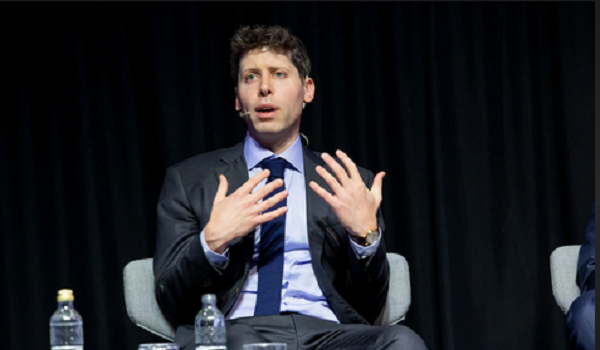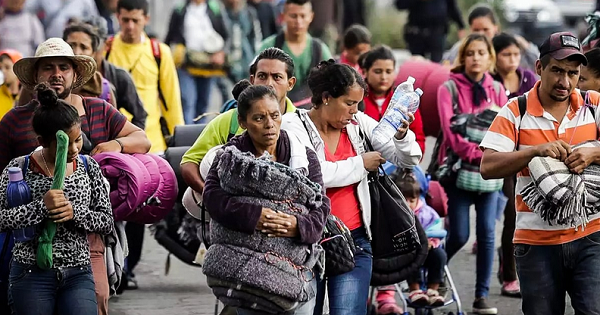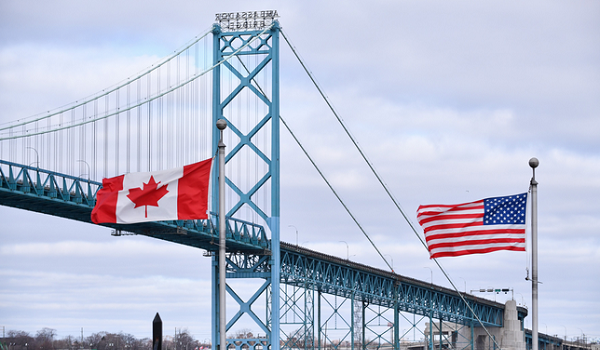Ottawa deny thousands of Gazans stranded at critical time visa approvals, immigration lawyers say
Almost 5,000 Palestinians who applied last year to take part in a special Ottawa program to help them flee war-torn Gaza and join relatives in Canada have been deemed eligible by the government, but so far only 620 – or fewer than 15 per cent – have arrived.
Immigration lawyers representing Palestinians and their Canadian relatives are accusing the government of deliberately stalling applications, and are urging officials to take advantage of the Israel-Hamas ceasefire and reopening of the Rafah crossing to press Israel to allow applicants still in Gaza to exit.
They say scores of Palestinians have paid thousands of dollars in bribes to cross into Egypt to complete biometric checks in Cairo required by the Canadian government and have been waiting for months there for final approval. Others are waiting in Gaza for confirmation that their visas have been approved.
Yameena Ansari, an immigration lawyer, said Immigration, Refugees and Citizenship Canada “is fully capable of expediting processing of applications. They do it regularly for many lines of business. So, if the Gaza applications are not being expedited, that is not an accident.”
Immigration lawyer Warda Shazadi Meighen of Landings LLP in Toronto said Canada must act swiftly to uphold its commitments under the Gazan program. “For those still seeking relocation – particularly individuals with family in Canada – this moment presents a crucial opportunity to fulfill our humanitarian obligations,” she said.
Matthew Behrens, who co-ordinates the Rural Refugee Rights Network, said “it is inexcusable” for IRCC to sit on applications for over a year, warning that “the border could be closed again at a moment’s notice.”
Ottawa’s program faced criticism over security concerns when it was announced. Last year, Marco Rubio, then a senator and now secretary of state in President Donald Trump’s administration, wrote to the U.S. Homeland Security Secretary, warning that the program raised the risk of allowing people with ties to terror groups, such as Hamas, to get easier access to the United States.
This week, Mr. Trump sparked global condemnation after proposing a U.S. takeover of Gaza to turn the enclave into the “Riviera of the Middle East,” after resettling Palestinians “in far safer and more beautiful communities” in the region.
On Thursday, he said Gaza “would be turned over to the United States by Israel at the conclusion of fighting.”
Canada’s temporary immigration program was launched in December, 2023, in response to the conflict between Hamas and Israel, allowing people with Canadian citizenship or permanent residency to bring extended family members from Gaza to Canada. The new arrivals would be able to live as temporary residents for up to three years.
As of Jan. 11, 4,831 applications from people eligible to join the program had been completed, according to IRCC. Other Palestinians who applied say that they have not received a code from IRCC needed for their applications to progress.
As of last month 1,037 Palestinians who applied to come to Canada had managed to get out of Gaza and IRCC said 620 people have so far arrived here. At least 461 Palestinians who fled Gaza since October, 2023, had been approved to come to Canada through other immigration channels as temporary residents.
IRCC said processing times vary based on when people can exit Gaza and complete biometric tests in Egypt.
“We have put forward names of people who passed preliminary eligibility and admissibility reviews to local authorities for approval to exit Gaza; however, Canada does not control who or when someone can exit Gaza,” said Nancy Caron, an IRCC spokeswoman.
Renée LeBlanc Proctor, spokesperson for Immigration Minister Marc Miller, said it continues to be immensely difficult for people to enter and exit the Gaza Strip.
Ms. Ansari, the immigration lawyer, said IRCC’s processing of paperwork for people fleeing the war in Ukraine was far swifter. “The number of Gaza applicants that have been approved is paltry as compared to the number of visa approvals we saw from Ukraine.”
She said security concerns about people from Gaza, administered by Hamas, which is listed as a terror group, are “grossly overstated.”
“We are talking about a population comprised of 47 per cent children. Children cannot be security threats,” she said.
Khatidja Moloo-Alam, founder of Lavender Law, representing some Palestinian clients, said “now that we have a ceasefire and Palestinians are able to leave Gaza, there are instances of Canada asking unreasonable security questions before a visa is issued.”
But Winnipeg immigration lawyer David Matas said the Gaza program should be adjusted to address security concerns, including those voiced by the Trump administration about people who may have ties to terror groups illegally crossing the border.
“In light of the prevalence in Gaza of Hamas, a Canadian-listed terrorist organization, and its widespread support, there needs to be specific directed concerns to ensure that Canada, under the Gaza program, does not allow anyone admission into Canada who is a member of Hamas,” Mr. Matas said.
“Having a modified Gaza program which focuses more on security than the present program does is one way of addressing the Trump administration security concerns.”
Among those who are stranded and waiting for approval are the family of Yasir Kaheil, a Palestinian-Canadian data analyst. His brother, Hazem, a brain surgeon who stayed in Gaza to help the injured in the bombings, paid for his wife, a teacher, and children to cross the border and make it to Cairo, and get their biometric tests. They are still there, while his other siblings and their families who also applied are stuck in Gaza and unable to leave.
Mr. Kaheil said he filled out lengthy, detailed applications with security questions, with his family, including about the history of their social media posts, but some of his relatives have not received the code from IRCC.
“The program is a joke,” he said. “The application process was extremely cumbersome. But I went through the pain of doing the applications and give them all the information, every piece of information they asked for. I gave it to them. But then nothing.”
Imtenan Abd-El-Razik, an immigration lawyer at Waterloo Region Community Legal Services, said IRCC says Canada had been giving names of applicants who passed preliminary security checks to the Israeli co-ordinator of government activities in the territories (COGAT).
“COGAT is supposed to complete their own security checks and then allow applicants to pass to Egypt where they would complete their Canadian biometrics and receive the visas,” she said. “I have not heard of COGAT clearing a single person, and there seems to be no appetite for the Canadian government to expend any political capital in pressuring Israel to allow the departures.”
Israel’s embassy in Canada said it wants to ensure that “no terrorist or weapons are smuggled through the Rafah border crossings,” but said Canada’s Gaza program is an “internal Canadian matter.”
“That said, as a general principle and unrelated to this specific case, we expect that no safe haven will be given to terrorist elements,” said Yifah Mivtach Greenvald, head of public diplomacy at the embassy.
“Israel took control of the Rafah crossing after witnessing Hamas exploiting it for its own purposes. Israel’s consent to the opening of the Rafah crossing depends on satisfactory security arrangements.”
This article was first reported by The Globe and Mail













